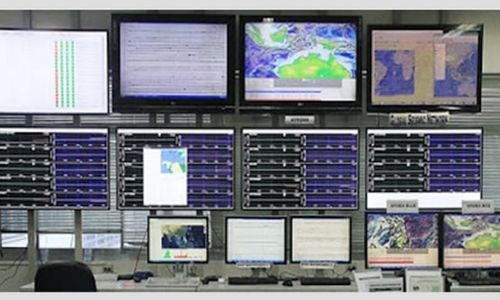Bahrain ‘one of safest countries in the world’
Agencies | Manama
The Daily Tribune – www.newsofbahrain.com
Staff Reporter
A leading World Risk Report on disaster preparedness has ranked the Kingdom as one of the safest countries in the world.
The report published by Bundnis Entwicklung Hilft, a German grouping of not-for-profit organisations and the Institute for International Law of Peace and Armed Conflict at Ruhr University Bochum has ranked the Kingdom 184, highlighting one of the lowest risks among 193 countries.
The World Risk Report is published on an annual basis by IFHV and Bündnis Entwicklung Hilft. It features the WorldRiskIndex which states the potential disaster risk of 193 of the world’s countries.
The index considers exposure to natural hazards such as earthquakes or cyclones, and calculates a society’s capacity to respond to such events.
Each year the WorldRiskIndex is supplemented by a focus topic that allows deeper insights into individual aspects of disaster risk management. According to the report, the nations with highest disaster risk are the Philippines, India and Indonesia.
Bahrain received an overall WRI ranking score of 0.95, accomplishing the tenth position among the world nations when it comes to disaster preparedness.
“The World Risk Index is a model that aims to raise awareness about the relevance of social capacities in disaster preparedness among the public and decision-makers in all sectors of society, to provide guidance for practitioners in the prevention of humanitarian crises, and to support decisions in the allocation and prioritization of resources.
“The aim is to create an understanding that the emergence and progression of disasters are highly dependent on the social conditions of the people, regions, and countries affected, to accompany the shift from reactive to proactive action.
For this purpose, a complex issue is reduced to individual values through modular structures to achieve a balance between comprehensibility and complexity,” the report said.
“Although this offers the advantages of quick orientation, easier communication, and visualisation of results, it also bears the risk that subtle information is lost or overlaid in the reduction and condensation of information.
In general, it should be noted that, like its predecessors, the new World Risk Index focuses on the risk of disasters due to extreme natural events and adverse impacts of climate change.
“Other types of risk such as conflicts, wars, or pandemics are deliberately only partially or not at all considered, as the driving forces of these risks differ in many respects from those of risks from natural events and climate.
Furthermore, it would be extremely difficult and in many cases impossible to integrate their explanatory approaches into the concepts, structures, and processes of the new model.
A transfer of the new World Risk Index results to these areas is therefore not possible, or only possible to a limited degree,” the report added. The Kingdom’s National Disaster Management Committee works under the Civil Defence Council within the Ministry of Interior.
According to Interior Minister Lt General Shaikh Rashid bin Abdulla Al Khalifa, the Kingdom has achieved many remarkable milestones in civil defence, especially after the department was expanded to a general directorate and the Civil Defence centres to all parts of the country, with the capabilities to deal with various accidents and disasters.
Related Posts

